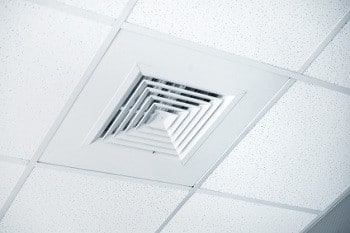Why Closing Registers to Help Save Energy Doesn’t Work

To try and reduce heating costs during the winter and cooling costs during the summer, some people close the registers in unused rooms with the impression this makes their HVAC system work less. The strategy of closing registers’ those vents in your rooms through which heated and cooled air from your furnace and the air conditioner is pumped seems to make sense. After all, with fewer rooms to heat and cool, your equipment shouldn’t have to work as hard, right?
Unfortunately, it turns out that closing your registers to save energy and money not only causes your equipment to work harder, it can also lead to safety issues and repair bills.
In 2003, the Lawrence Berkeley National Laboratory conducted a study to find out if closing registers in unused rooms worked. What they found may surprise you:
- Closing registers to cut energy use actually caused homes to use more energy, as duct leaks from increased pressures in duct systems caused energy losses that outweighed energy savings from heating or cooling only a part of the homes
- Closing too many registers (more than 60 percent) resulted in airflow resistance that severely restricted airflow through the HVAC systems and lead to safety concerns, such as furnaces that operated on the high-limit switch, and damage to systems, such as cooling systems that suffered from frozen coils
- Closing registers farthest from the air handlers caused fewer leaks and tended to affect only the closed off branches, but closing registers nearer the air handler tended to increase duct pressures the most and cause air leaks throughout the whole system
Not surprisingly, the laboratory concluded that the register closing technique is not recommended as a viable energy-saving strategy.
Looks like it’s time to break out those wool sweaters and turn on those ceiling fans.
Sources
California Energy Commission’s Consumer Energy Center, Closing Off Vents and Rooms to Save Energy.



